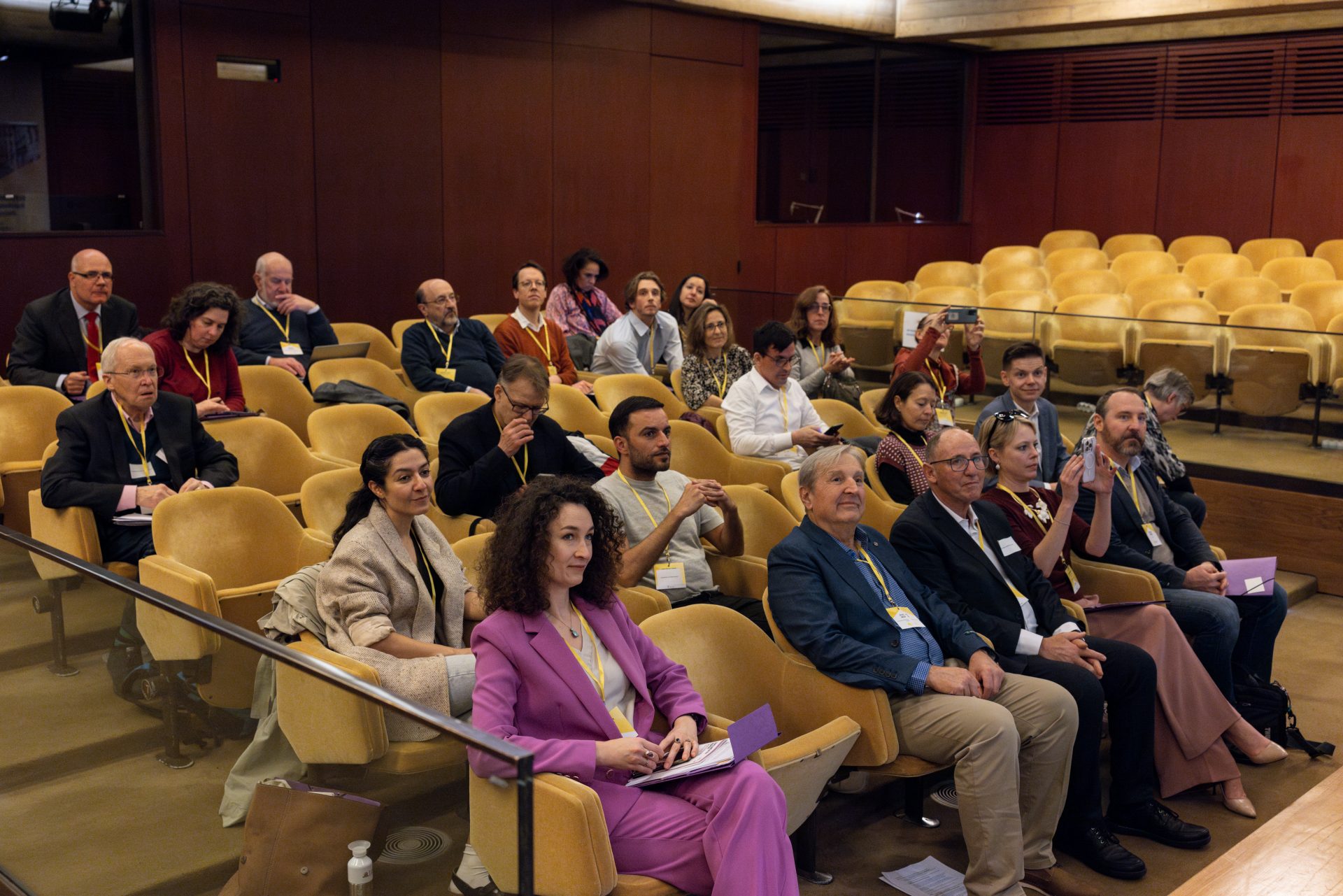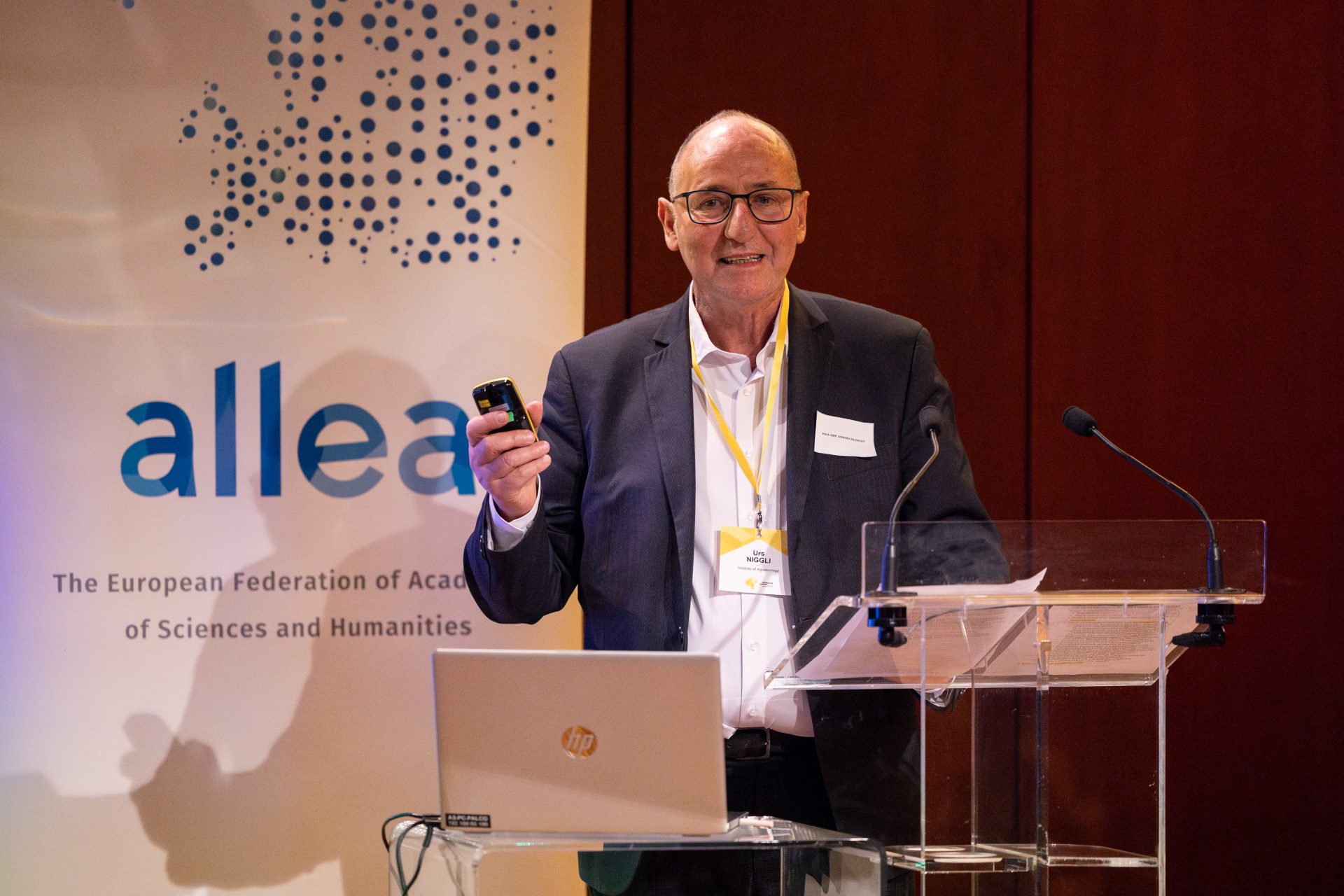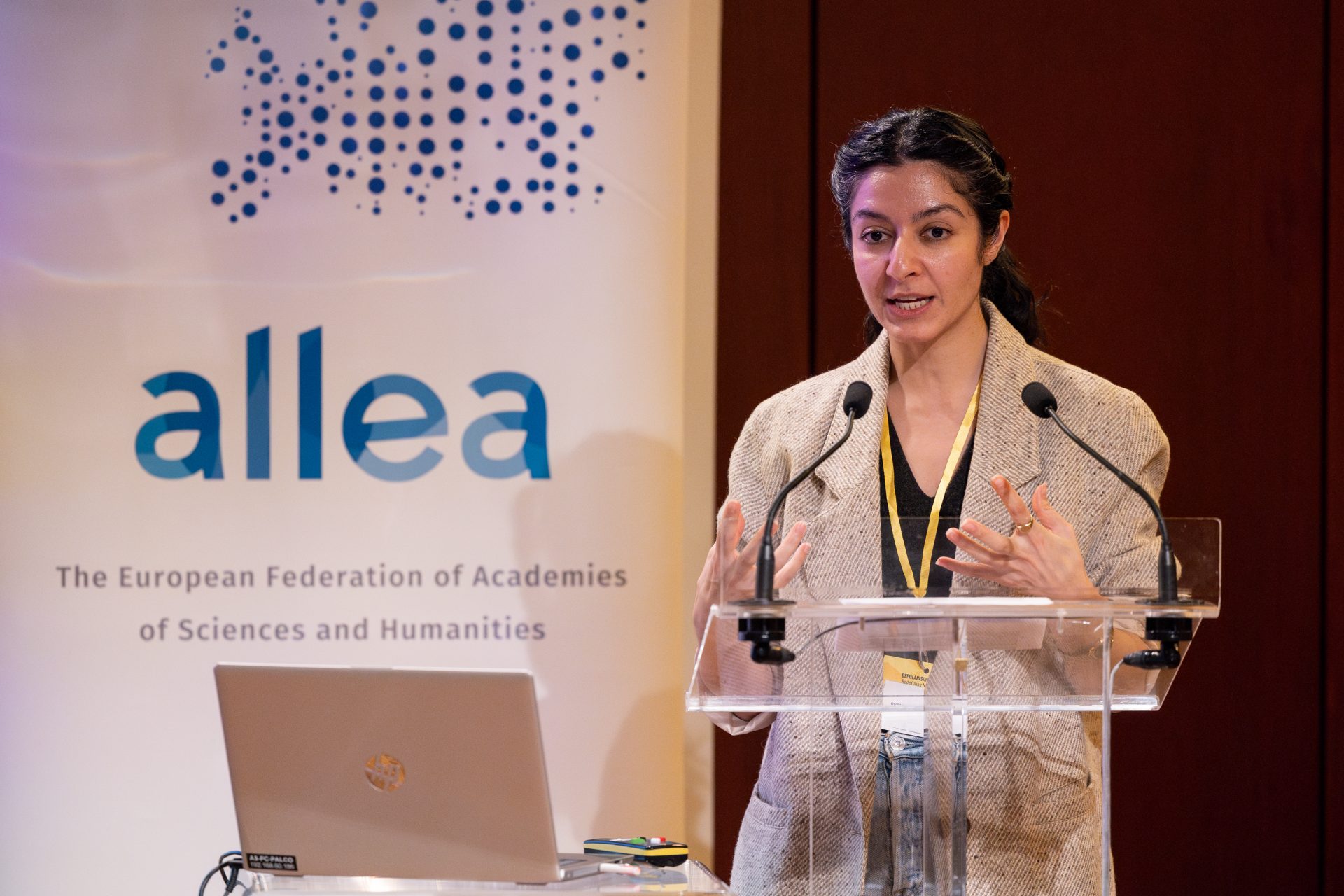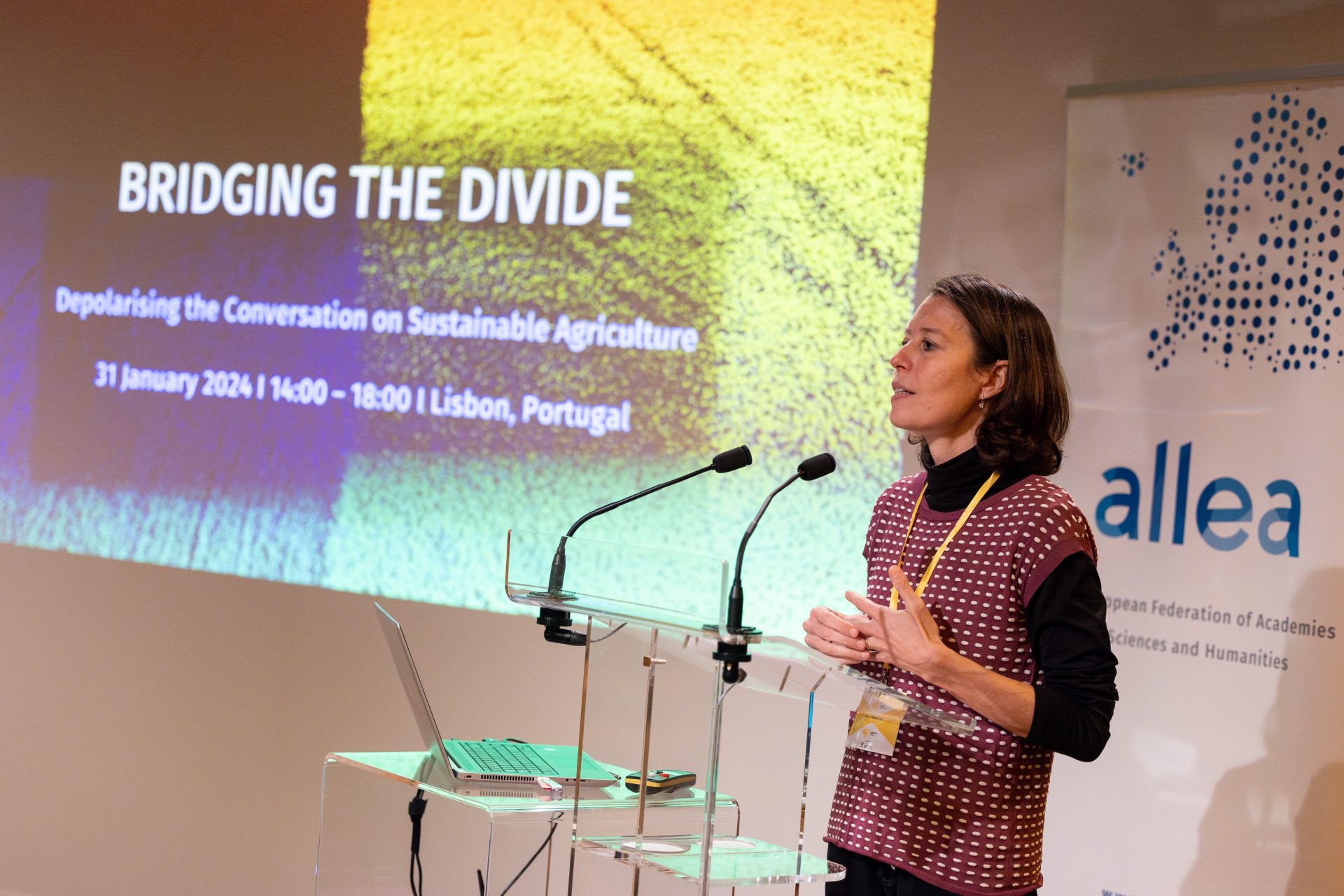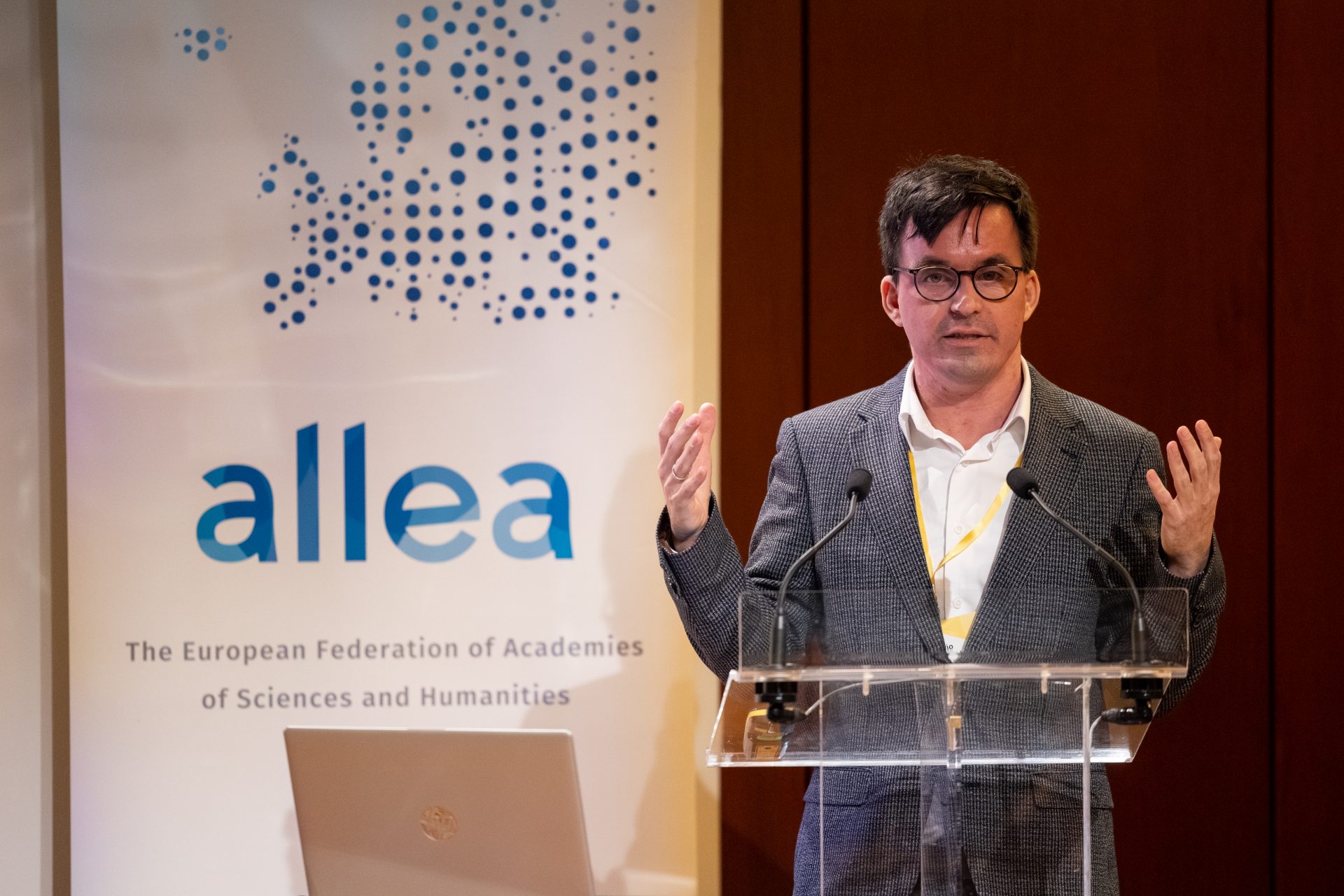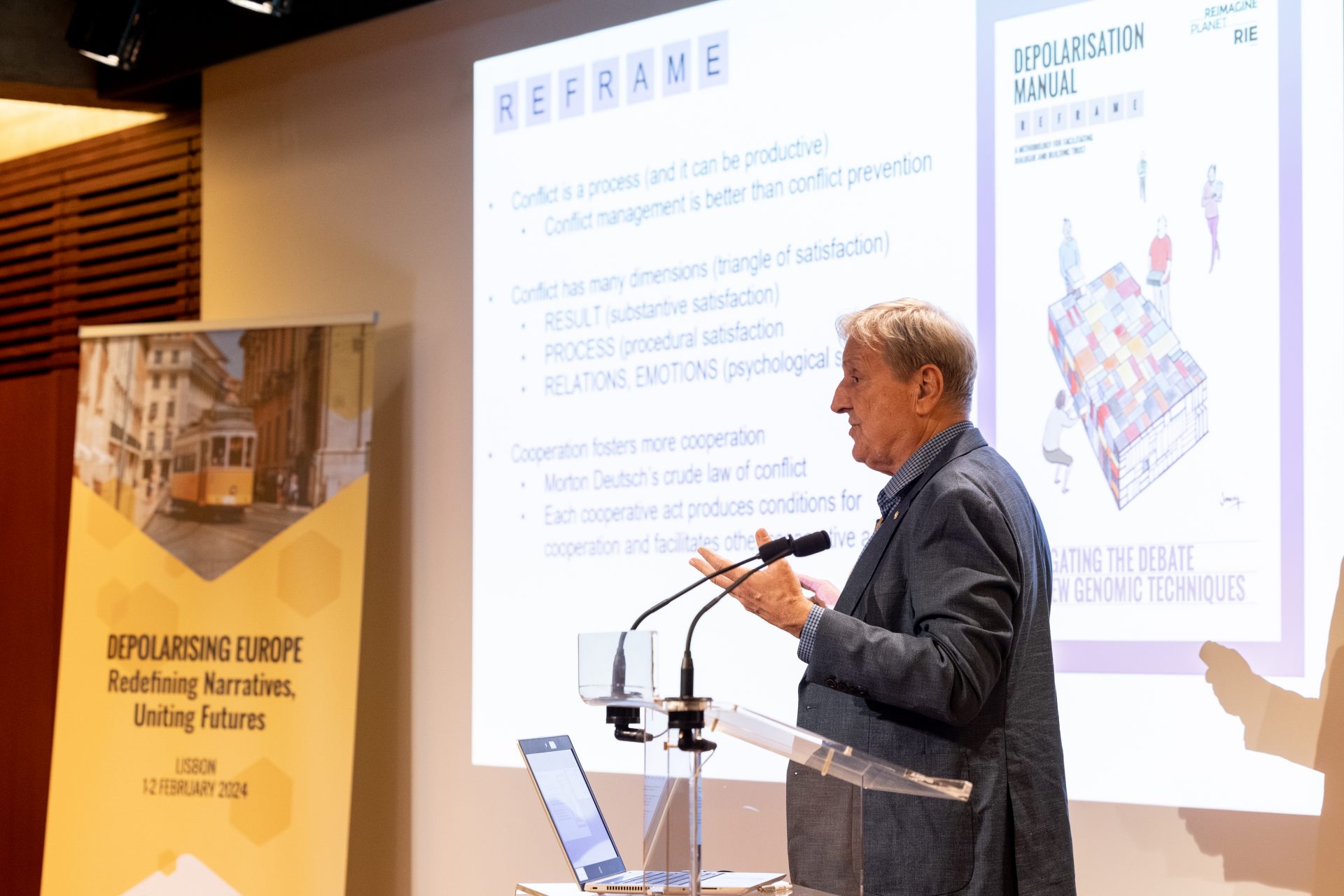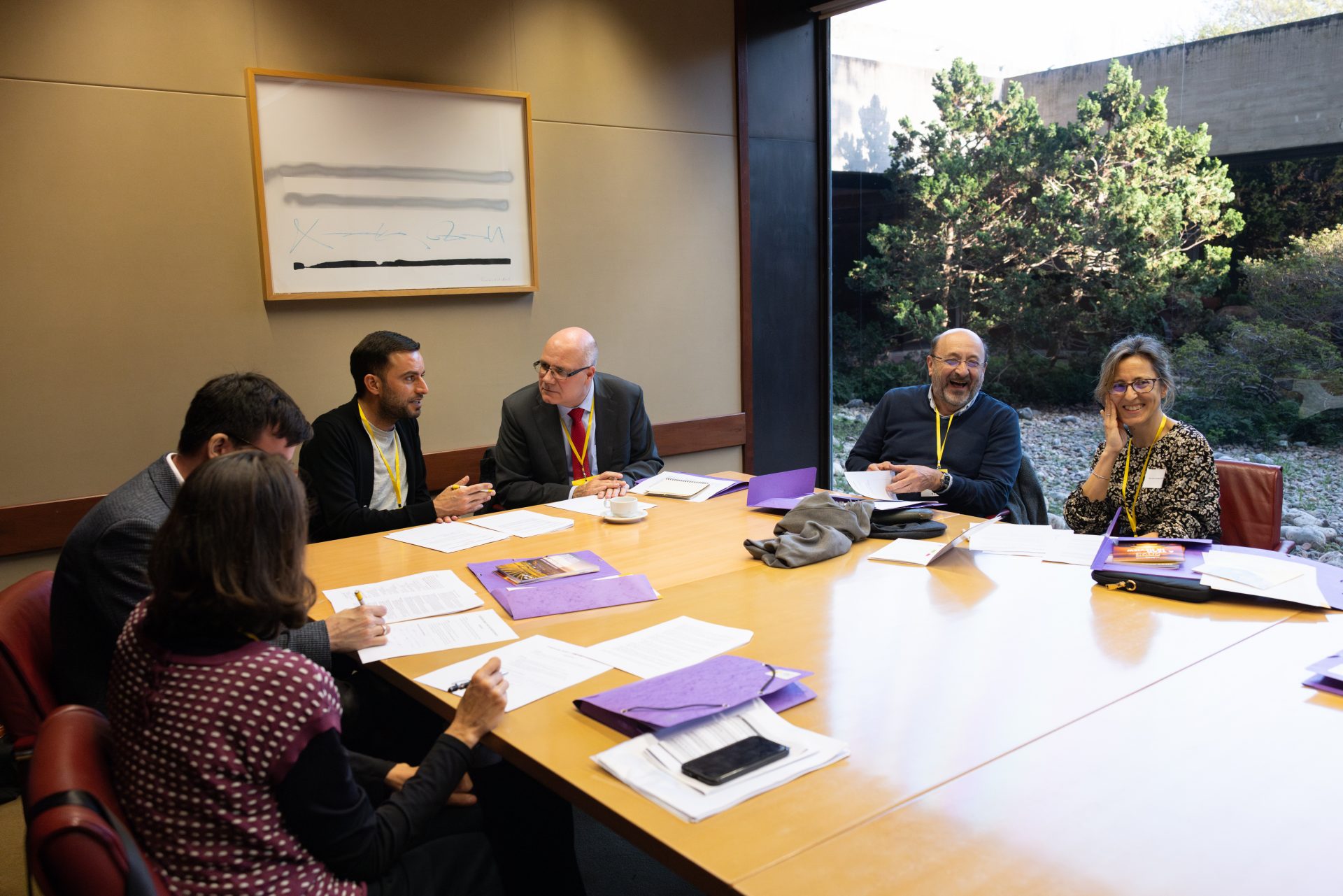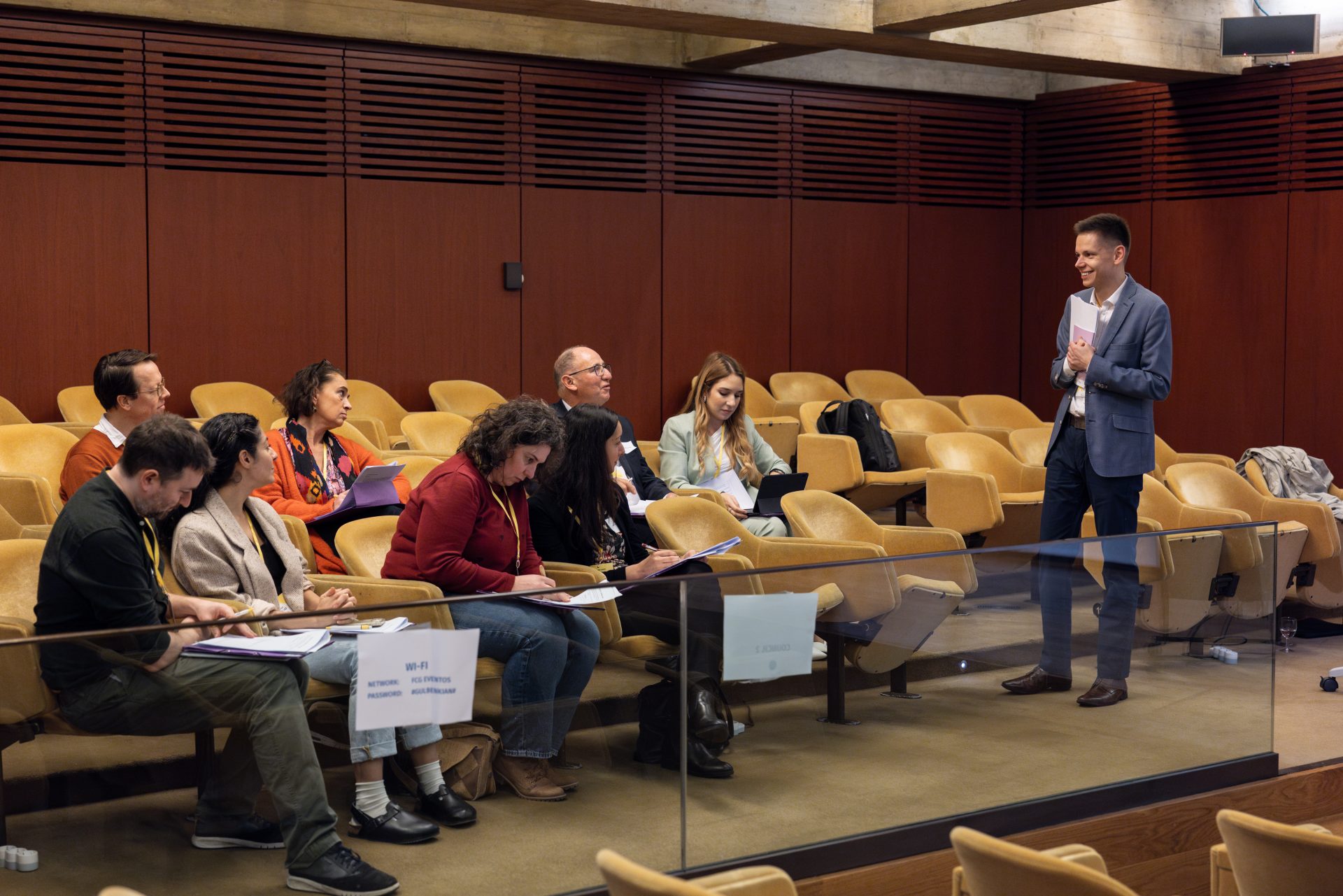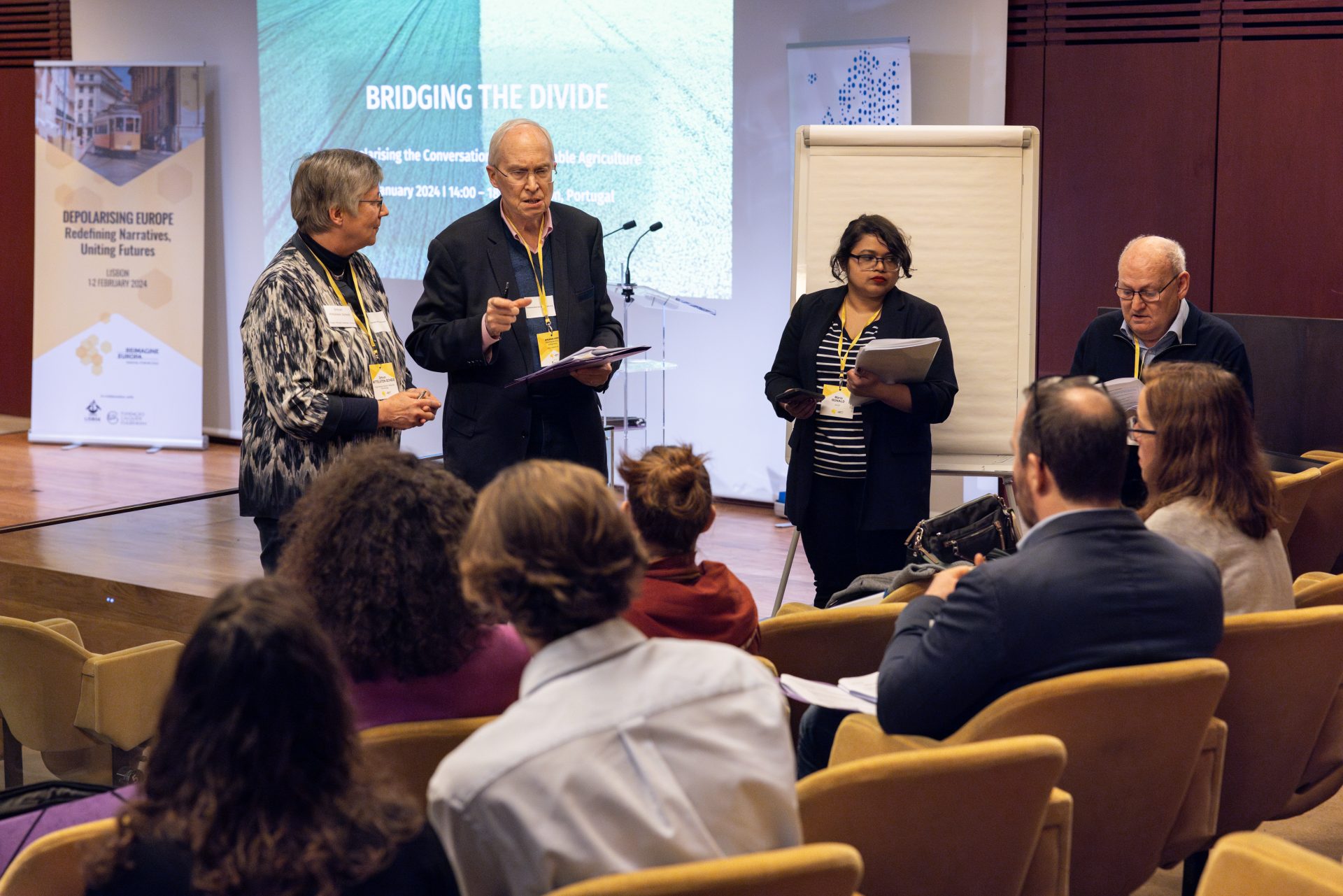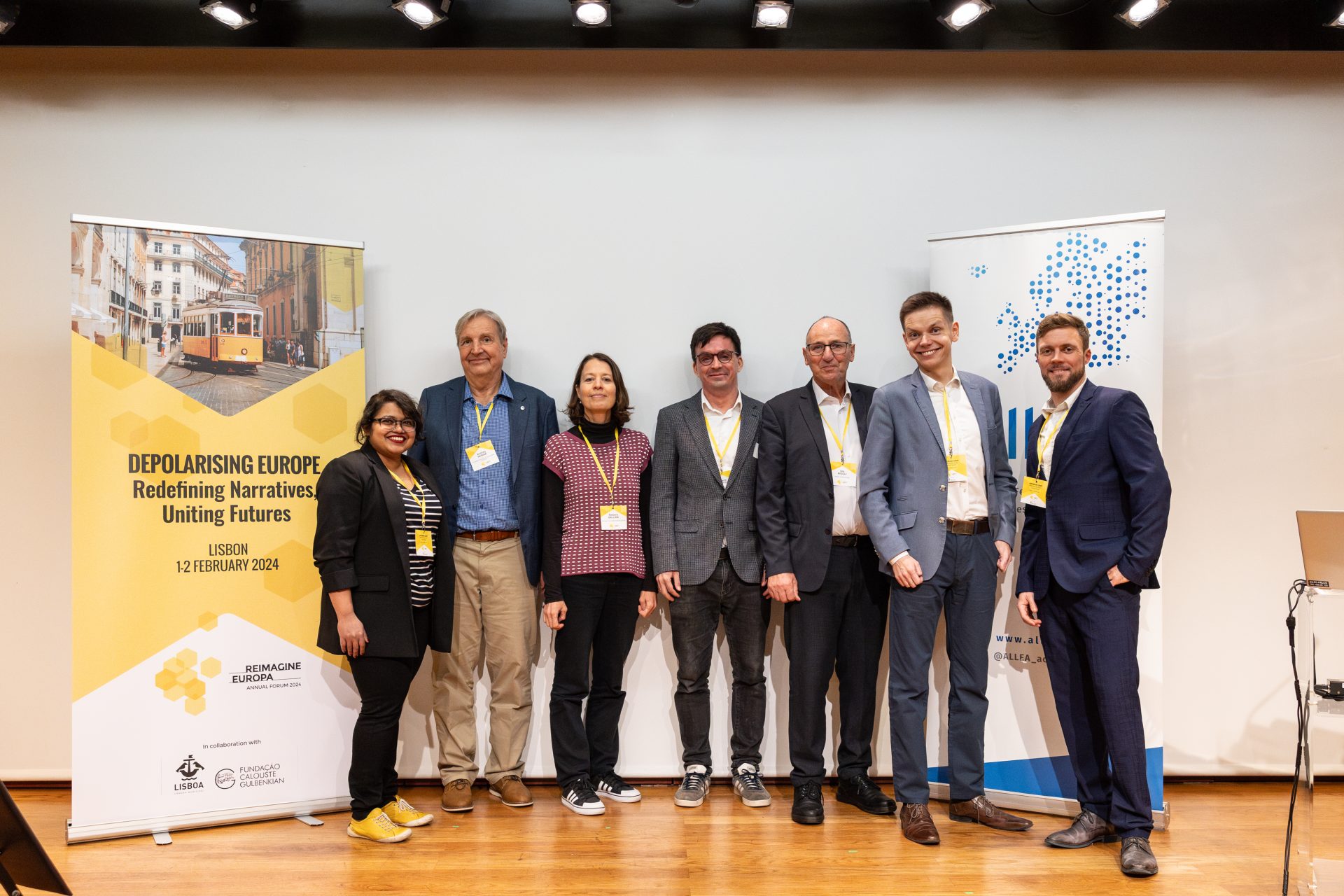Re-Imagine Europa (RIE), in collaboration with ALLEA – All European Academies, the European Federation of Academies of Sciences and Humanities, recently hosted a workshop titled “Bridging the Divide: Depolarising the Conversation on Sustainable Agriculture.” The event took place on January 31st, 2024, at the Calouste Gulbenkian Foundation, in Lisbon, Portugal, as a Satellite event of RIE Annual Forum 2024. It brought together diverse relevant stakeholders, including policymakers, representatives from seed industries, universities, NGOs, researchers, food and agriculture organisations and consumer groups.
The workshop unfolded in two distinct segments, each contributing to the objective of addressing polarisation and disinformation in the context of sustainable agriculture. The first segment featured presentations delivered by esteemed speakers, while the latter segment engaged participants in practical exercises, employing the Depolarisation Manual and the REFRAME methodology.
Professor Urs Niggli, President of the Institute for Agroecology, who was the first keynote speaker, provided a deep analysis of the current state of the debate on sustainable agriculture, coupled with the myriad challenges currently facing the agricultural sector. He highlighted the need for various sectors, such as technology, agroecology, and the organic industry, to work together to achieve sustainable agriculture.
Subsequently, Dr. Donya Alinejad, an Associate Professor at Utrecht University, delivered the second presentation, which focused on the research findings of PERITIA regarding Media and Public Trust in Science. Dr. Alinejad highlighted the erosion of public trust in science, largely attributed to the polarisation and politicisation of scientific discourse in the media. She posed a critical question: Can we build a form of scientific knowledge that fosters healthy engagement, or politicise science that is toxic? Dr. Alinejad stressed the importance of comprehending the nature of the ongoing debate to facilitate constructive engagement and rebuild trust.
Addressing European institutions’ efforts to enhance communication of science and engage with citizens, Ms. Barbara Gallani, Head of Communication and Partnerships at the European Food Safety Authority (ENGAGE) Department, highlighted the increasing conversation surrounding topics such as one’s health, biodiversity, and innovation. She also stressed the pressing need for scientific literacy within society, given the existing deficit in technological literacy, which increases distrust in institutions. Her presentation concluded by posing thought-provoking questions, urging consideration on how to disseminate accurate information and foster scientific literacy, while engaging those exposed to misinformation on the path to shared values.
The next presenter, Mario Scharfbillig, a Science Policy Advisor at the Joint Research Centre of the European Commission, delved into the intricate subject of Trust and Intelligence. His presentation, titled “Values and the Moralization of Public Policies: Evidence from a Multi-Country Survey,” explored strategies for governments to enhance communication with citizens. Scharfbillig advocated a shift in focus, encouraging governments to prioritise actions aligned with citizens’ preferences, thereby building trust and promoting inclusivity. He concluded by emphasizing the importance of providing answers to citizens’ questions rather than advancing the government’s agenda.
The final presentation of the day was delivered by Prof. Marcin Napiórkowski and Prof. Andrzej Nowak, Contemporary Mythologies Scholar and Chief Narrative Scientist at Re-Imagine Europa, respectively, on the Depolarisation Manual & REFRAME methodology. This innovative approach seeks to steer discussions away from polarising debate and towards a values-centric dialogue. Highlighting that we need to move from narratives as a part of the problem to narratives as a part of the solution.
Afterwards, the participants delved into a practical exercise to test and apply the REFRAME Methodology that distilled multiple communication strategies into a seven-point process that aims to allow the debate to move beyond the current impasse, towards a productive dialogue.
